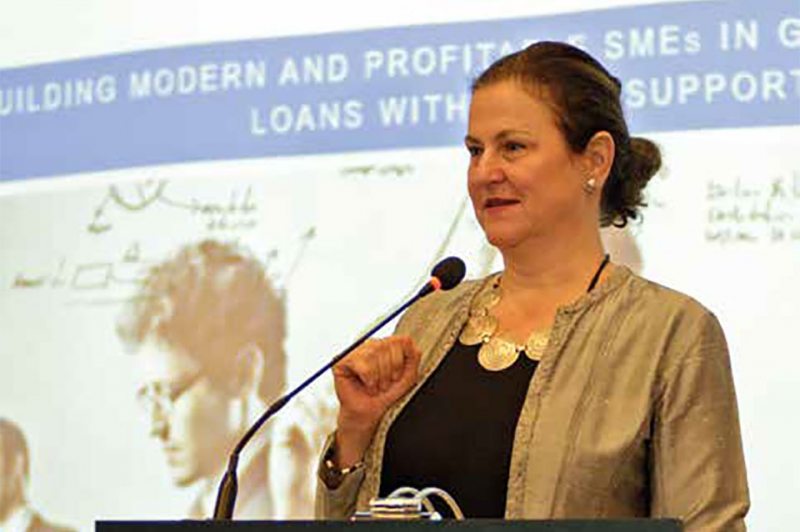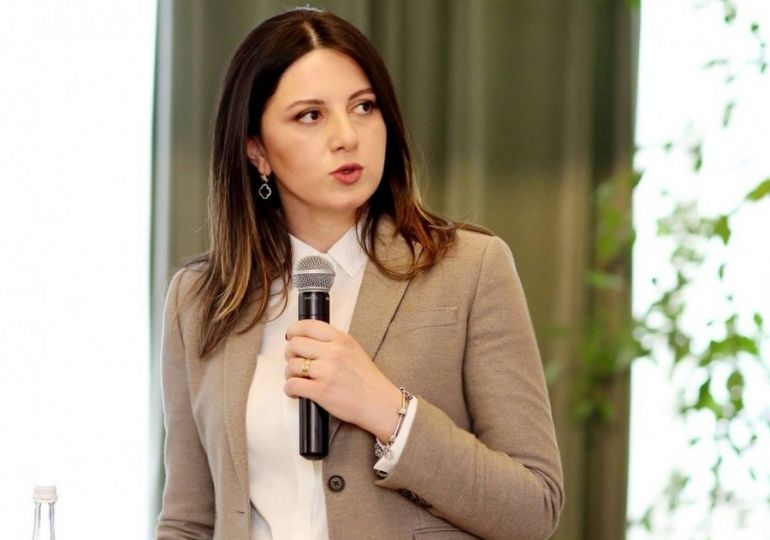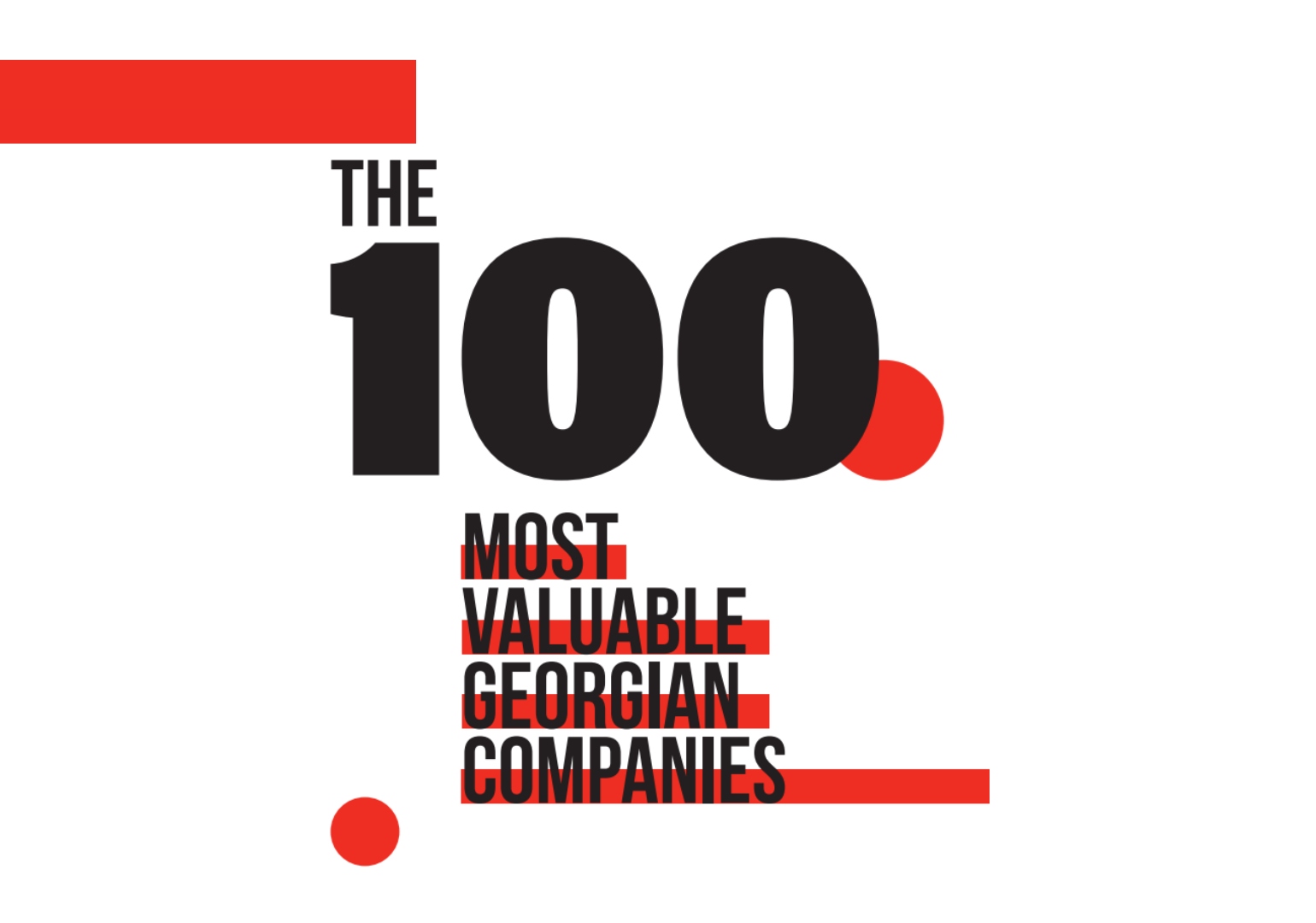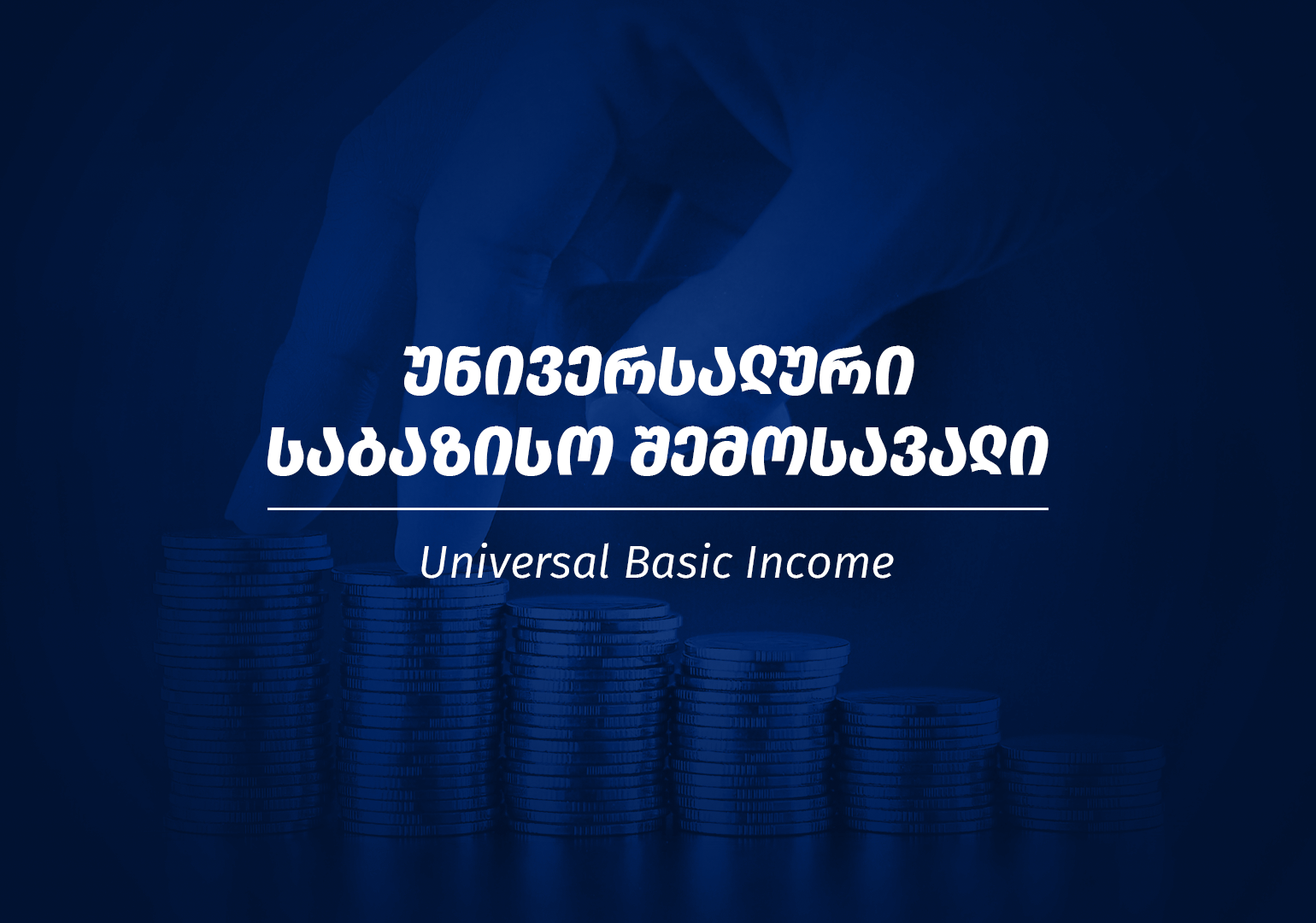The European Union launched a new External Investment Plan (EIP) in Tbilisi. Ms. Katarina Mathernova, Deputy Director-General of the Directorate General for Neighborhood Policy and Enlargement Negotiation is sure that the EIP will boost investment and support more inclusive and sustainable development in Georgia. The EU External Investment Plan is another sign of the strong commitment from the European Union to encourage economic growth through private and public investment in Georgia, says Ms. Mathernova. In her interview with Forbes Georgia, she openly speaks about alternative methods of business development in the country and provides details of other EU financial assistance.
What is your overall assessment of the economic development in Georgia?
Overall our assessment is very positive. Georgia has taken on a lot of important reforms on quite a sustained basis and it seems that we are over the hump with regard to the negative impact of the developments in the region, as well as and the slump in trade with Russia. In following the developments in the region over the last several years, I think we are out of that period and also out of the period of developments in the European Union negatively effecting trade with its neighbors. Georgia grew significantly last year and the projections for this year are somewhere between 4.6 and 4.8 percent growth, which is excellent news. The other good thing is that the foreign direct investment has gone up.
What is the European Union’s assessment of the recent increase in FDI in Georgia?
Well, I think that it means that the reforms are paying off. It also means that Europe is doing better economically as well, with an increase of 16.7 percent, as it was last year. What I am happy about is that over half of it comes from the EU. This, in turn, means that the Deep and Comprehensive Free Trade Agreement (DCFTA) and the closer trade relations that we’ve established are now starting to pay dividends.
What are your recommendations for improving business development in Georgia?
We certainly have recommendations, but we also offer concrete support. We are actually launching a major program on economic and business development this year that amounts to close to €40 billion in grants, which we hope will mobilize a lot more investment from our partner international financial institutions. The main recommendation really will be to invest institutionally and in terms of regulatory improvements for the small and medium-size enterprises (SMEs) because they are the backbone of any developed economy and we think that both the regulatory aspects, as well as the need to improve access to finance by SMEs is really an area of focus that needs to be paid attention to. We are able and ready to provide various types of assistance, but one of the things that we very much want to work on is improving access to non-bank financing, because one of the structural problems of the Georgian economy is that banks are too dominant. There are very few sources of financing and this why we want to work to improve this, e.g. leasing, factoring, insurance, collateral and invention financing.
How will the European Investment Plan contribute and what does it mean for Georgia?
The External Investment Plan is a plan that the EU launched for the Neighborhood countries and for the African countries last fall. It is intended for two things: one is that it brings a new tool into our assistance toolbox by creating an instrument, a comprehensive guarantee paid from the EU budget. It is designed to bring the private sector into development, because there are a lot of projects that could be financed if the private sector came in, but the private sector is shy. Now we are talking about cultivating a local private sector, as well as bringing European private sector companies on a more massive scale, so it’s creating this guarantee and there are going to be five different windows under which this guarantee can be used. One is energy efficiency, others include SMEs, sustainable agriculture, smart cities and the digital economy.
How will Georgian companies be able to profit from the EIP?
Georgia will be able to profit by having businesses linked with our partners through which we will launch the External Investment Plan. These are the international financial institutions and the national promotional banks, like KFW and the IFD of France. They will be setting up instruments either for SMEs or equity funds or banks for financing, or in energy efficiency, by creating schemes that would be able to finance energy efficiency improvements. The same thing applies to the digital economy and others. Georgian businesses will be able to profit by using the guarantee to help them make the investments. I also want to return to your previous question. The financing issue is one element of the EIP. Equally important is the policy dialogue, policy improvements and the technical assistance we are providing under the EIP, and this is where I want to go back to the issue of – for example –creating the institutions and rules to expand the financing options away from only banks. Banks are, of course, always important and there needs to be a broader set of options, especially for SMEs to receive financing from. They need to be developed. Any healthy economy needs to have a variety of funding sources. You can have models like the US for example where it is the capital markets that have much more dominance than in Europe. Georgia is too small for any really deep capital markets. There are going to be some, but it’s important to create what I call a financial infrastructure, the ‘pluming’ of the financial sector – collateral registry for removable assets, inventory financing and so on.
Let’s talk about energy efficiency and its importance? As I know you have special opinion towards this issue?
I call myself an ‘energy efficiency evangelist’ because it’s rare to find a public policy that addresses so many issues as energy efficiency. Improving energy efficiency standards, especially in buildings, ticks so many boxes. People who live in energy efficient apartments or houses pay much lower bills. For example, in m2 apartments which we visited, the bill, on average, is 37 percent lower than in other buildings. The second benefit is that your comfort level is much higher but equally important is to create energy efficient buildings because the materials don’t need to be imported from Russia, Germany or Italy, the way it is now. Now the windows are from Germany, the heating machine is from Italy and the material insulating the facades is from Russia. Why? When you can produce it locally. As long as there is a demand, it will push the local market to develop. So you will create businesses, you will create jobs and you will create whole new professions, for example, energy auditors. When I bought a new house in Belgium, I got an energy efficiency certificate. Somebody needs to be giving these certificates. The profession that doesn’t exist now but will exist once there is a market. Last but not least, it’s also important from an energy security prospective, because your country imports a lot of energy from abroad, and the cheapest energy is the kind that you don’t use and therefore, you decrease your energy dependence. So, energy efficiency is actually something that can create a virtuous circle that can act as a very important transformation for your economy.
Are there any further plans slated on behalf of the EU that aim to improve and build on Georgia’s economic development?
Well, I mentioned that we’re rolling out almost €50 million in grant support for economic and business development this year, where we’re looking at issues of commercial justice. In addition, we are looking at the financial sector deepening and of course, we are also looking at the non-banking financial sector. We are also looking into creating value chains in a number of areas, for example, in agriculture, construction and tourism. Also, we would like to incorporate these items into the European value chains. We are also working with our international financial institution partners in rolling out support schemes. For example, my favorite one is providing microcredit and SME lending in local currency, so both KFW and the EBRD with the support of the EU can provide lending in Lari, which, I think, is very important, especially because of the plan to de-dollarize the economy. We are also implementing the second phase of something called the DCFTA facility, which is a credit line support of local SMEs to invest in areas that will help comply with the requirements, the technical and phytosanitary norms that go hand-in-hand with trading with the EU.















